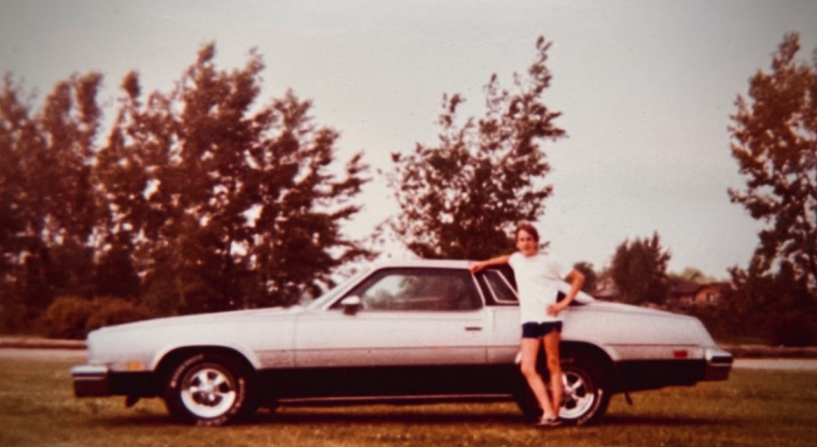Buckle Up, Buttercup; That New Car Will Cost You $1 Million
You may enjoy owning new vehicles, but driving slightly used vehicles is financially much smarter

We all
love our new cars; the smell, the advanced technology, the ability to drive up
to friends and family and convey, "I'm successful," without saying a
word. And remember that peace of mind; you don't want to add unnecessary risk
to your family by driving anything but a safe and reliable vehicle. While
trying to talk yourself into the new vehicle, watch a few new car
advertisements near the holidays. Never mind that less than 0.01% of the
population receives a new car over the holidays, the commercials make it seem
normal that virtually Everyone gets a new automobile from Santa.
If you are
feeling bold, step into a dealership; they will make the process smooth and
easy and try to make you feel so good about your new automotive investment.
But let's
be clear, automobiles are not an investment; they are a depreciating asset that
requires maintenance and additional ongoing capital commitments to keep them
legal, safe, and operational. We can discuss reducing vehicle costs so you can
use your hard-earned money elsewhere. So, if any quick salesperson calls your
new car “an investment”, you have my permission to correct them.
But new cars are fun! All else being equal, virtually everyone would prefer driving a new car to a used one. Like anything in life, nice things come at a price, and you should be aware of that accurate price before making a decision.
So we ran
the analysis for you; when all the dust settles, and we account for all the
additional costs and savings of buying a new car vs. a used car, you can save
over $1,000,000 by the time you retire at 65. Let me repeat for clarity; if
person A purchased a new vehicle every three years (owning it throughout its
factory warranty), and person B purchased that exact 3-year-old used vehicle
from person A and drove it for ten years, and repeating this buying behavior
until retirement, by investing the savings person B would have an account worth
$1,113,000. For easier context, we conducted this analysis in constant 2023
dollars; the actual amount will be much higher in the future when adjusted for
inflation.
This bold
assertion has many assumptions, which I will outline below for clarity so the
disbelievers can repeat the analysis on their own. But this most significant
assumption is the human commitment to investing the savings. It's why most
Americans live paycheck to paycheck; if money is left over at the end of the
month, they spend it; they don't invest it.
But this
"just spend it" problem is easy to overcome; it just takes a little
planning upfront. Over the lifecycle, Person B will save $450/month from
driving a used vehicle rather than a new one. This includes considerations for
the many cost of ownership differences, including maintenance, taxes, licenses,
and even tires. Knowing this, simply open an online brokerage account, put $450
a month into the account, invest it into an S&P500 ETF, and increase this
amount 2-3% per year to adjust for inflation. Set it up on an automatic payment
plan, and you're done. If you are feeling jealous that your neighbor just
purchased a new car and you're driving an 8-year-old sedan with a few
scratches, have your car detailed, and then look at your brokerage account with
$400,000 in savings. I assure you that you will feel much better (and wiser).
But I know what you are saying to yourself, so let's address the most common objections:
- I work hard, and I deserve a new car. You do work hard, and if driving a new vehicle is more important than having an extra $1 million in the bank at retirement, you should buy new vehicles. Used vehicles depreciate because people prefer new ones. Our million-dollar plan can only function because some people are willing to buy new and absorb the steep depreciation curve. Thank you for being an enabler for the millionaire next door.
- New cars are safer and more reliable. This is like buying new golf clubs to improve your game; you discover its 95% player and 5% equipment. Driving has similar dynamics. If you are concerned about safety, don't drink and drive, take a high-performance drivers course to learn better car control, invest in better tires that will allow you to stop and turn quicker, don't text and drive, don't be distracted while driving, and be courteous on the road. The statistics are on my side; the top 5 reasons for accidents are distracted driving, speeding, drunk driving, reckless driving, and rain. Unless you have never texted while driving, sped, nor driven in the rain; your logic of buying new for better safety starts to break down quickly. We can also look at the safety of new cars vs. older cars. You will find considerable noise in this data as vehicle deaths are rare. The US fatality rate is 1.46 deaths per 100 million miles driven and has been roughly half of what it was when I was learning to drive in the 80's. But we can look at a few data points to see if newer is actually better, and we find no substantial difference; in fact, we can find many instances where the older cars are safer. According to the Insurance Institute for Highway Safety, when analyzing all 4 door midsized sedans (Subura Legacy, Honda Accord, Toyota Camry, etc), the average fatality rate per million years registered is 28 for the 2011 model year. When we look at that same data set for the 2017 model year (the most recently published year), the fatality rate is 36. Simply put, the older cars are 22% safer than the newer cars. While this is a statistically accurate statement, in actuality, the newer cars are likely slightly safer, and the data would support this if we carried it over a billion vehicles instead of a million vehicles.
- I like
cars; it's a passion. It's what I work for. If it's your passion, buy a daily driver and an additional
older car you truly love. I have several vehicles over 20 years old. One is a
street-legal Porsche optimized for the track, I love that vehicle, and it
stopped depreciating years ago. It's frankly a cheap car to own. I receive as
much enjoyment from my older non-depreciating cars as my neighbor with his new
$100k pickup or my buddy with a $350,000 Ferrari.
- The
maintenance of used cars becomes too expensive. Welcome to Raise a Hood. Maintaining a
used vehicle can be costly if you walk into a dealership service shop
uneducated and subservient to their recommendations which are often primarily
designed to improve their profits. Get smart before you make a decision at the
shop, don't be afraid to do some basic maintenance yourself, and pocket the
savings toward your $1,000,000 account.
When you
follow this simple plan and find yourself more prosperous than expected through
years of sound fiscal and automotive best practices, don’t forget to reach out
and thank me. If I’m still around, you will certainly warm the heart of a very
old man.
_______________________________________________________________
This
analysis is based on many assumptions, as outlined below. Each is based on
long-term historical averages wherever possible, and experts within the
industry when reliable data is unavailable.
Average
New Vehicle Price:
$48,000 (2022)
Average
3YO Vehicle Price:
$27,800. The typical vehicle deprecates to 58% of its original value after 3
years.
Average
13YO Vehicle Price: $5000.
Conservative price for a well-maintained used car.
Average
New Vehicle Warranty: 3
years
Average
Annual Maintenance Cost, Used Vehicle:
$500 when new, increasing to $1000 at year 13.
Average
Annual License Fees: $600
when new, reducing to $75 at year 12.
Average
Annual Cost of Tires:
$0 for years 0-3, then $200 thereafter.
Tax
Rate of Vehicle Sales:
6%
Rate of
Inflation: 3.3%
Investment
Rate of Return (S&P 500):
12%
Average
Loan Duration: 6 years
Average
Interest Rate of New Car:
5%
Average
Interest Rate of Used Cars:
9%
Age of
First New Car: 25
Age of
Retirement: 65
KEYWORDS:
RELATED ARTICLES
Join the conversation, and share more learnings
Login to join the conversation



Great!
very great
Great Article! Inflation is definitely only going to worsen the issue with buying new cars.
You are right!
Good point
I couldn't agree more with this article. Cars are indeed depreciating assets, and it's essential to make wise financial decisions when purchasing one. The idea of saving over $1,000,000 by opting for used cars throughout life is truly eye-opening. It's all about setting priorities and focusing on long-term financial security. Thank you for shedding light on this topic!
That's incredible!!
That sounds really expensive
I think I'll stick with my old jeep!
Me Too!
yes